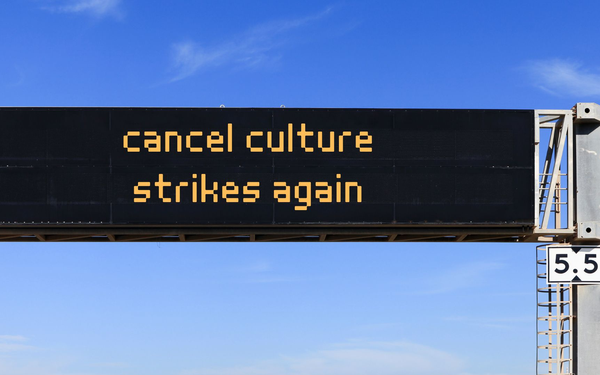
In a surprising update, the feds announced last week that
states have two years to adopt the new rules in its 1,100-page Highway Administration manual, which include prohibiting the use of humor in electronic messages on highways.
1,100 pages and not ONE
joke?
Humorous highway signs have caught the attention of drivers and passengers for years – with a multitude of states rolling out witty slogans and callouts meant to turn heads, such
as “Visiting in-laws? Slow down, get there late” to “Hands on the wheel, not your meal” or “That’s the temperature, not the speed limit.”
Instead of
these playful punchlines, the manual mandates that states simply display warnings of crashes, inclement weather, delays -- and the always uplifting warnings about the dangers of speeding or driving
impaired. I was unable to find any studies linking these signs to accidents, but I was driving while I was scouring Google, so I might’ve missed them.
advertisement
advertisement
What I did discover was a study by
the University Of Toronto revealing that messages featuring traffic death statistics on these signs led to an additional 2600 crashes and 16 deaths each year, costing $377 million annually.
Not to mention every driver keeping their eyes peeled for a silver 2008 Nissan Altima from that Amber Alert instead of keeping their eyes on the road.
This senseless censorship could have
additional unintended effects.
A Cal State University/Dominguez study found that humor helps us retain and recall more information. So now I’m expected to remember there’s a bridge
out in five miles when there’s not even a punchline?
In a time of infinite content, videos have literal seconds to grab our attention, which doesn’t bode well for seven-hour road
trips without the catchy punches provided by these signs.
Removing humor from these highway signs may even have an unintended negative impact on advertising! Contrary to popular belief, a
McGill University study found that subjects viewing an ad during an upbeat, “positive” show were more likely to pay attention and remember more about the ad than if they were to see it
during a “negative” show. So if someone were to hear your product or service pitched on a podcast after reading a sign about harrowing DUI statistics, they’re more likely to ignore
and forget the ad you spent precious dollars on.
Studies have revealed that humor is linked with social relationships and can effectively reduce stress and enhance empathy -- two key metrics
for emotional intelligence and psychological safety, two things we can certainly use to bring us together. So, in a weird way, these signs brought Americans of all makes and models together in
separate vehicles to chuckle softly to ourselves and say “That was kinda funny.”
Removing humor from these signs shows a misunderstanding of how humor can positively impact our
daily routines. Like a punchline you didn’t see coming, opening yourself up to the humor in serious places like highway signs can help you navigate the complexities of everyday life as you
navigate the complexities of interstate travel.
In a world where we’re constantly being bombarded with negative news stories and sobering statistics, a friendly reminder by the
Department Of Transportation’s resident office comedian that “Getting a DUI is worse than getting a gift from Aunt Clara” via a street sign can help disrupt that pattern.
Now
if you’ll excuse me, I should probably keep my eyes on the road.